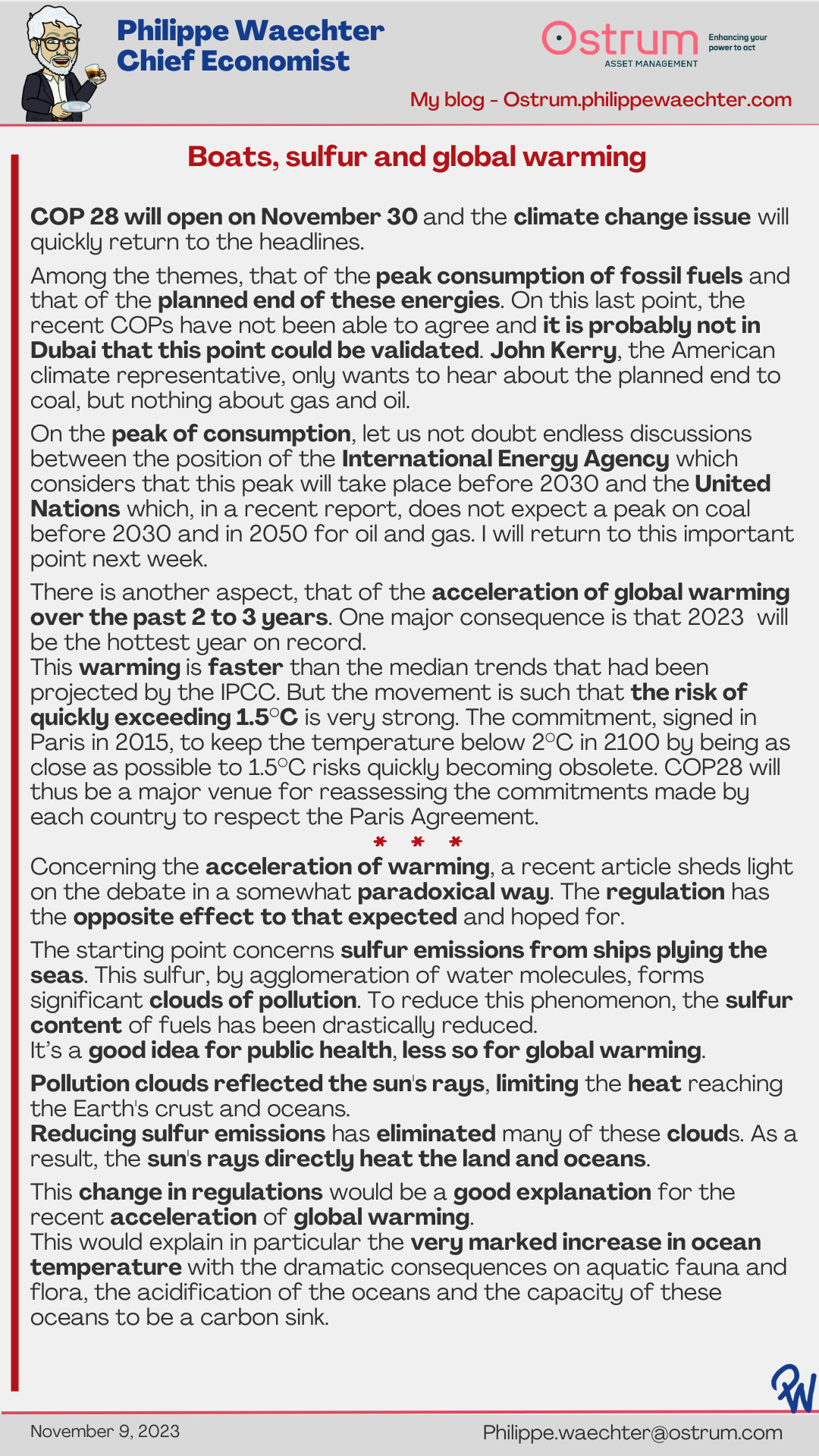COP 28 will open on November 30 and the climate change issue will quickly return to the headlines.
Among the themes, that of the peak consumption of fossil fuels and that of the planned end of these energies. On this last point, the recent COPs have not been able to agree and it is probably not in Dubai that this point could be validated. John Kerry, the American climate representative, only wants to hear about the planned end to coal, but nothing about gas and oil.
On the peak of consumption, let us not doubt endless discussions between the position of the International Energy Agency which considers that this peak will take place before 2030 and the United Nations which, in a recent report, does not expect a peak on coal before 2030 and in 2050 for oil and gas. I will return to this important point next week.
There is another aspect, that of the acceleration of global warming over the past 2 to 3 years. One major consequence is that 2023 will be the hottest year on record.
This warming is faster than the median trends that had been projected by the IPCC. But the movement is such that the risk of quickly exceeding 1.5°C is very strong.
The commitment, signed in Paris in 2015, to keep the temperature below 2°C in 2100 by being as close as possible to 1.5°C risks quickly becoming obsolete. COP28 will thus be a major venue for reassessing the commitments made by each country to respect the Paris Agreement.
Concerning the acceleration of warming, a recent article sheds light on the debate in a somewhat paradoxical way. The regulation has the opposite effect to that expected and hoped for.
The starting point concerns sulfur emissions from ships plying the seas. This sulfur, by agglomeration of water molecules, forms significant clouds of pollution. To reduce this phenomenon, the sulfur content of fuels has been drastically reduced.
It’s a good idea for public health, less so for global warming.
Pollution clouds reflected the sun’s rays, limiting the heat reaching the Earth’s crust and oceans.
Reducing sulfur emissions has eliminated many of these clouds. As a result, the sun’s rays directly heat the land and oceans.
This change in regulations would be a good explanation for the recent acceleration of global warming.
This would explain in particular the very marked increase in ocean temperature with the dramatic consequences on aquatic fauna and flora, the acidification of the oceans and the capacity of these oceans to be a carbon sink.




